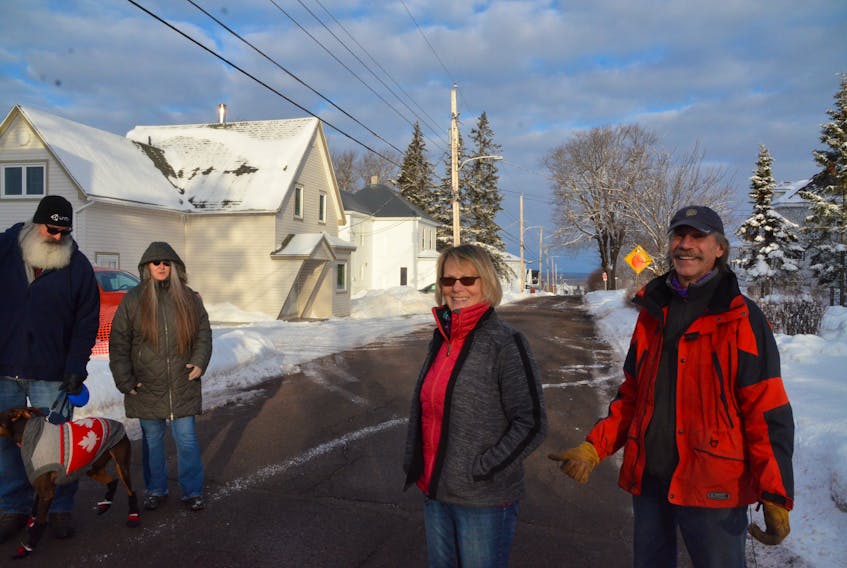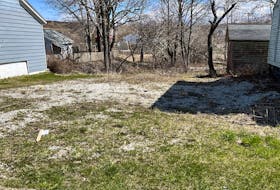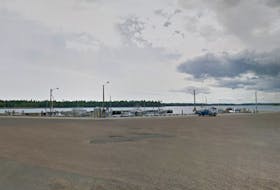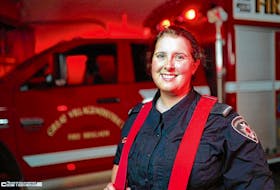SPRINGHILL, N.S. — After two weeks self-isolating and three more giving each little town in this province a once over, Anne Dudman and Peter Finley dropped anchor in the parking lot looking out over Springhill’s ballfield.
It was early October and the old friends from Ontario were looking for a new home.
Finley saw people playing pickleball.
“I love playing pickleball,” he remembers.
“That moved it (Springhill) to the top of the list.”
For the next three weeks, that parking lot became their home as the retirees looked for a house to buy.
A year ago that would have been easy.
“Springhill had been competing with Glace Bay for the lowest price housing in the province,” said Mike MacDonald, a realtor based in nearby Oxford.
“Houses were going for $50,000.”
'Demographic all over the place'
Inland, with high unemployment and still bearing the emotional, social and economic scars of back-to-back mine disasters in the 1950s and two large fires that burned most of the downtown core, Springhill has seen its population nearly halved over the last two decades.
In 2015, the town gave up its municipal status and dissolved into the surrounding Municipality of the District of Cumberland County.
But the pandemic has prompted a migration to the haven of the Atlantic provinces, where COVID-19 case numbers are relatively low. In just over a year, some 70 properties have sold in the community of 2,700 souls.
The arrivals are from all over.
“I just sold one to a lady from Russia the other day, her partner was into computers and can work from anywhere,” said MacDonald.
“The demographic is all over the place.”
With the new neighbours comes a cultural exchange.
“During our time in the parking lot there, we got to know all these kids that hung out there with their cars,” said Finley, 70.
“They were friendly and respectful. Seemed to us to be pretty darn good kids.”
New neighbours on Mechanic Street
When they purchased a house on Mechanic Street, a long row of small houses just off Main built in the early half of the 20th century to hold the families of a blue-collar coal-mining town, two of their immediate neighbours were new arrivals as well.
One was from British Columbia and the other pair, Carolann and Scott Macdonald, are from Los Angeles.
Scott’s claim to fame is that he built the first net camera for an NHL game.
“It was for the Leafs, to test it out (then Toronto Maple Leaf’s captain) Wendel Clark lined up 25 pucks and took slapshots at it,” MacDonald.
Clark’s pucks did destroy the camera, but they figured it wouldn’t get hit that many times in a game.
The pandemic hit the film industry hard in Los Angeles and in the spring Scott, director of engineering for an equipment building company, got furloughed along with most of the rest of his co-workers.
Over the months that followed, he watched America tear itself apart in a social and political reckoning, the pandemic swamped Los Angeles hospitals with the sick and dying and he started searching for a new home on the internet.
Carolann’s originally from New Brunswick and they knew about the Atlantic bubble, so that was a draw.
And then there's the inexpensive housing.
But their other demands for their new home are telling and they closely align with what Finley and Dudman wanted.
They want to be able to walk downtown to a restaurant, pub and library. They want there to be a hospital nearby, an airport and nature.
It might come as news to us Nova Scotians, but the new arrivals don’t consider a two-hour drive down a low traffic Highway 104 to be a long commute to Halifax Stanfield International Airport.
'It just feels like we’ve come home'
In September, Carolann flew to Halifax with their pets and Scott packed all their belongings into the biggest U-Haul he could rent and headed north, staying away from large urban areas in an effort to hit the Canadian border as quickly as possible.
Once in the Prairies, he headed east to begin a self-isolation in a town he’d never seen in person.
“The culture shock was how good everyone was to us,” said Carolann.
“Our realtor delivered our fridge. We had neighbours dropping off food. Now everyone knows our names at the restaurant. It just feels like we’ve come home.”
The big question for Springhill will be how many of the new arrivals stay.
Both the MacDonalds and Dudley and Finley say they will and the realtor MacDonald thinks most will stay too. He points to Tatmagouche, a charmed community on the Northumberland Strait that has seen an influx of retirees who volunteer and spend their money at the restaurants, coffee shops, brewery and farmers market.
That creates jobs for local entrepreneurs and tradespeople.
It’s the lightning every town planner wants to catch in a bottle.
Doug Spencer would welcome it.
In 2017, he came home after three decades working in Ontario to be neare his sick mother. There was nowhere to sit down and get a full breakfast in town.
So he opened the Fence Busters Café.
Named after a men’s baseball team of coal miners, who from 1920-51 toured Atlantic Canada winning championships, the restaurant is dedicated to Springhill’s history.
“They’d shut the mine down when the team was playing at home and there’d be 3,000 people at one of their games,” said Spencer.
When Spencer left in the '80s, there were over 5,000 people in Springhill but no opportunities for a young man.
This will be the first year since then that the community has grown.
He welcomes the new customers and energy they bring to his town.
But Springhill, he’s quick to add, has its lessons to share with the newcomers as well.
“This is a hard-luck town,” said Spencer. “But hard luck makes people stick together.”
Farther up Main Street, Capts. Stephen and Rosalyn Toynton, and their volunteers with the Springhill Salvation Army Community Church, were giving a lesson in sticking together through hard times on Wednesday morning.
They packed and handed out groceries to 20 families.
The food comes from local business and area residents, churches of other denominations and Feed Nova Scotia.
“It was looking rather decrepit,” said Capt. Stephen Toynton of when he and wife first came to Springhill in 2015.
“But since the county took over they’ve done the road and the sidewalks. The buildings are getting fixed up and there’s that new restaurant. It is looking optimistic.”









